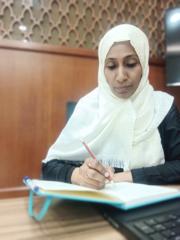Sep 3 • 🌍 MB Community / مجتمع إم بي
Soft skills Series -Day 5-Problem Solving and Critical Thinking
Life and work will always throw challenges at you.
The question is:
Do you react quickly without thinking, or do you pause, analyze, and decide wisely?
✨ Objectives:
🔹 Identify and analyze problems clearly: Many times, we react to the symptom instead of the real problem.
Example: If sales are low, the real problem might not be the product but poor marketing or weak customer service.
🔹 Differentiate between praise, criticism, and feedback: Not all criticism is negative.
Example: A colleague says, “Your report has good data, but the formatting is confusing.” That’s feedback, not an attack. Learn to use it to improve.
🔹 Make ethical decisions under pressure: Sometimes the easy way isn’t the right way. Example: A manager might be pressured to fake numbers to impress investors — but integrity is always the better choice for long-term success.
💡 Activities to Try:
- STAR Method Role-Play: Pick a challenge (like missing a project deadline).
- Practice explaining it with
- Situation,
- Task,
- Action, and
- Result.
- This helps you structure your thinking.
- Workplace Ethics Case Studies: Discuss with friends: What would you do if you saw a colleague cheating on expenses?
- Example 1: Project Deadline
A team has a project due on Thursday. Suddenly, one member gets sick.
- Some people focus only on the problem: “We can’t finish on time.”
- Critical thinking asks: “What’s truly important? Can we redistribute the tasks and still make it? Or politely request an extension from the client?”
✨ Lesson: Clear thinking helps you separate panic from solutions.
Example 2: Customer Complaint
A customer says: “This device is bad and doesn’t work.”
- The quick reaction: “Return it, we’ll give you a refund.”
- Critical thinking asks: “Wait, what exactly isn’t working? Is it the battery? Is it how the customer is using it?”
Maybe the solution is simply explaining how to use it, instead of losing the customer.
✨ Lesson: Gathering information before making a decision saves both time and money.
🌟 Takeaway:Good decisions come from clear thinking, ethical judgment, and teamwork.
🌟 اليوم الخامس: حل المشكلات والتفكير النقدي 🌟
يا جماعة، الشغل والحياة مليانة تحديات.
السؤال:
إنت بتركّب ساي وتتصرف بسرعة، ولا بتوقف دقيقة، تفكر، وتحسم القرار بحكمة؟
✨ الأهداف:
🔹 تحدد المشكلة بوضوح:
مرات بنعالج العرض وما بنشوف أصل المشكلة. مثلاً: المبيعات ضعيفة… الناس بتلوم المنتج، لكن السبب الحقيقي ممكن يكون الإعلان الضعيف أو خدمة العملاء السيئة.
🔹 تفرق بين المدح، النقد، والتغذية الراجعة:
مش كل نقد سلبي. مثلاً زميلك يقول: “تقريرك مليان بيانات كويسة لكن التنسيق ملخبط.” دا ما هجوم، دا ملاحظة بتخليك تحسّن شغلك.
🔹 قرارات أخلاقية تحت الضغط:
أحياناً في ضغط تسوي الحاجة السهلة لكن الغلط. زي مدير يطلبوا منو يزوّر الأرقام عشان يرضي المستثمرين… لكن الأمانة هي الحل البخلي النجاح طويل الأمد.
💡 تمارين عملية:
- طريقة STAR:
- اختاروا مشكلة زي فشل تسليم مشروع في الزمن. جرّبوا تشرحوها بأربع خطوات:
- الموقف (Situation)
- ، المطلوب (Task)
- ، العمل (Action)
- ، النتيجة (Result).
- دراسة مواقف أخلاقية: ناقش مع أصحابك: لو لقيت زميل بيزوّر في المصاريف، تعمل شنو؟
- عميل يشتكي من المنتج: “الجهاز دا سيئ وما شغال.”
- الرد السريع: “أرجع ليه، حنرجع ليك فلوسك.”
- التفكير النقدي: “خلي أسألو: الجهاز ما شغّال كيف؟ هل المشكلة في البطارية؟ في الاستخدام؟
- ”ممكن يكون الحل ببساطة شرح طريقة الاستخدام، بدل خسارة العميل.
✨ الدرس: جمع معلومات قبل ما تقرر بيوفر وقت وفلوس.
إدارة تطلب منك تزوّر تقرير مالي عشان يبان الأداء ممتاز.
- القرار السريع: “أعمل ساي وأحافظ على شغلي.”
- التفكير النقدي + الأخلاق: “لو عملت كدا ممكن أنطرد بعدين أو أتورط قانونياً.”
- الحل الصح: ترفض وتشرح المخاطر، أو ترفع الموضوع بطريقة مهنية.
✨ الدرس: التفكير النقدي دايماً مربوط بالأخلاق.
🔥 Hashtags:#SoftSkills #CriticalThinking #ProblemSolving #MBAinLife #مهارات_ناعمة #التفكير_النقدي #حل_المشكلات
7
3 comments
powered by

skool.com/mb-usa-academy-9843
منصة للمبدعين ومتعددي المواهب تتيح لك تصميم حياتك بأسلوب يناسب شغفك، مع فرص عمل، علاقات بزنس، دورات تدريبية مجانية، وموارد تدعم نموك وإبداعك.
Suggested communities
Powered by
